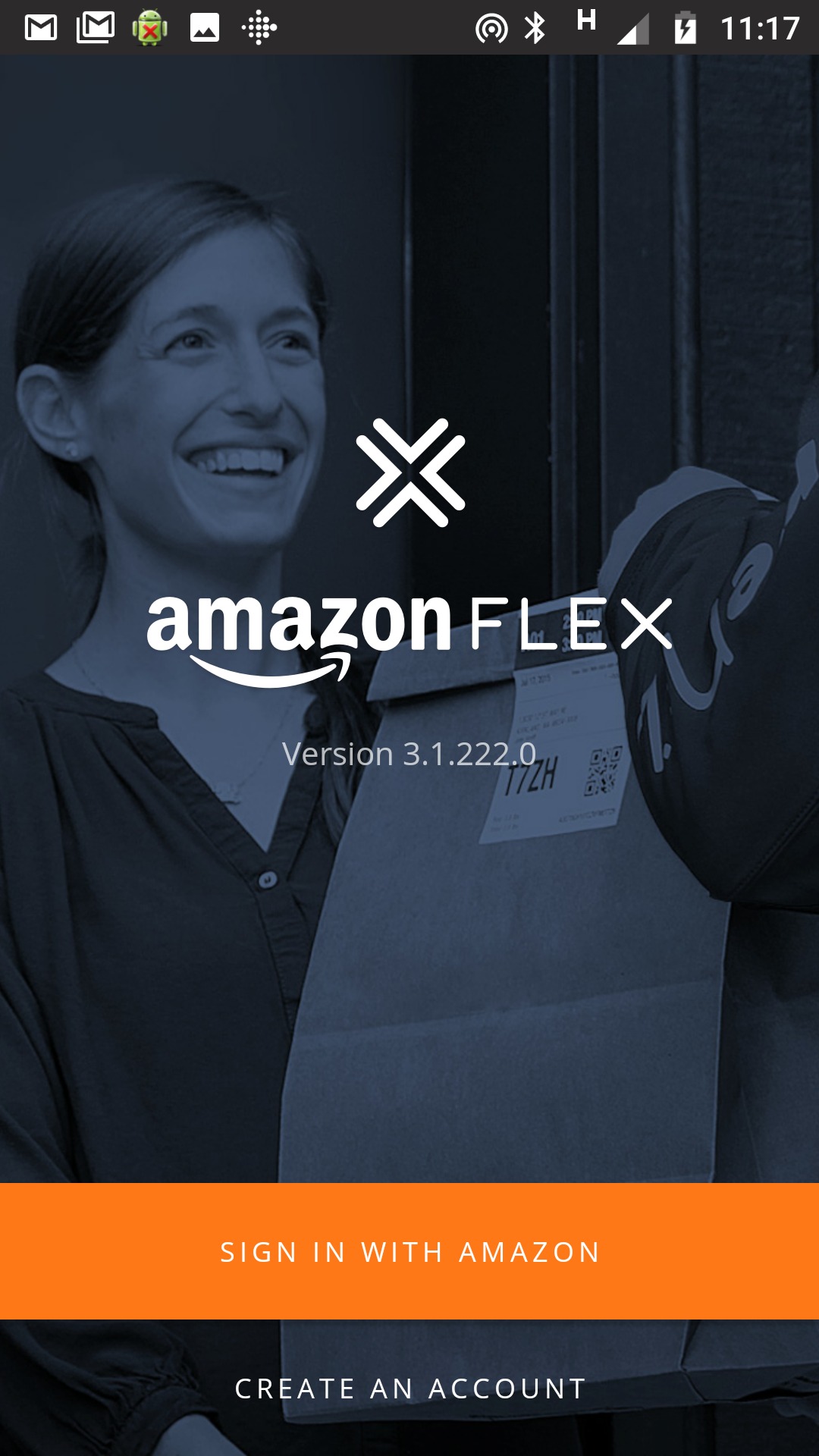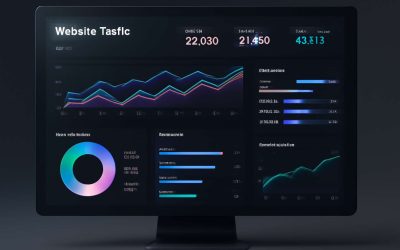Understanding Website Traffic and Its Importance
What Is Website Traffic? – Definition and types of website visitors
Website traffic is the lifeblood of any digital enterprise. Without visitors, even the most beautifully crafted website remains a silent monument to potential. But what exactly constitutes website traffic? In essence, it’s the number of users who visit your site, engaging with your content, products, or services. This influx can be categorised into various types, from organic visitors discovering you through search engines to paid traffic arriving via advertising campaigns.
Understanding the different types of website visitors is crucial for shaping your SEO strategy. Organic traffic, for instance, stems from search engine results and is often the most sustainable form of growth. Conversely, paid traffic — which can include segments like display ads and social media promotions — offers immediate visibility, but raises the question: can you buy website traffic? Many businesses explore this avenue, hoping to boost their visibility quickly and test different marketing messages. While it might seem tempting, it’s essential to weigh the quality of bought traffic against its potential impact on your SEO efforts and long-term reputation. After all, not all traffic is created equal; quality matters just as much as quantity.
Why Is Traffic Essential for SEO? – Impact on rankings, visibility, and credibility
In the vast digital landscape, website traffic is the shimmering thread that weaves your online presence into a vibrant tapestry. It fuels your visibility, draws in curious visitors, and ultimately shapes your authority in the virtual realm. But why is traffic so vital for SEO? Because search engines interpret high visitor numbers as a sign of relevance and trustworthiness. When your pages attract consistent traffic, your rankings tend to ascend, making it easier for new audiences to discover your offerings.
Many businesses ponder, can you buy website traffic? The allure of immediate exposure tempts even seasoned marketers. However, the real impact hinges on the quality of that traffic. Genuine visitors who engage with your site contribute to organic growth, while low-quality paid traffic can distort your metrics and harm your credibility. Whether you’re investing in paid campaigns or cultivating organic reach, understanding the true value of traffic ensures your SEO efforts remain authentic and effective.
Organic vs. Paid Traffic – Differences, advantages, and challenges
Understanding website traffic is akin to deciphering the heartbeat of your digital presence. It’s more than just numbers; it’s the pulse that signals your visibility in the vast, ever-shifting landscape of the internet. When contemplating whether you can buy website traffic, it’s vital to recognise that not all streams of visitors are created equal. Genuine, organic traffic flows naturally—driven by authentic interest, search intent, and meaningful engagement. Conversely, paid traffic can be a double-edged sword, sometimes flooding your site with visitors who lack real intent, skewing your metrics and potentially damaging your credibility.
For those pondering if you can buy website traffic, consider the differences: organic traffic grows through effort, trust, and relevance, fostering long-term SEO success. Paid traffic, while offering immediate exposure, challenges your ability to attract a targeted audience and maintain authenticity.
- Organic traffic relies on quality content and search engine optimisation
- Paid traffic offers rapid, targeted visibility but risks low engagement
Ultimately, a harmonious blend of both, executed with strategic finesse, is often the most enchanting approach to elevating your website’s standing in the digital realm.
Can You Legally and Ethically Buy Website Traffic?
Types of Paid Traffic Sources – Ad networks, traffic exchange services, and safe providers
In the delicate dance of digital marketing, the question lingers: can you buy website traffic without stepping over the fine line of legality and ethics? The answer, much like a well-tailored suit, depends on how it’s tailored. The concept of paying for traffic isn’t inherently illicit—many reputable companies do it—yet the ethical landscape is far more nuanced. You see, the allure of boosting numbers quickly can tempt even the most principled marketer, but one must tread carefully to avoid the reputation-damaging pitfall of fake or low-quality visitors.
When exploring paid traffic sources, it’s essential to distinguish between the legitimate and the dubious. Ad networks such as Google Ads or Bing Ads are the stalwarts—transparent, regulated, and generally safe. Traffic exchange services promise a flurry of visits, but often at the expense of quality, akin to advertising in a bustling marketplace filled with noise but little substance. For those seeking a more ethical approach, choosing safe providers that prioritise genuine engagement is paramount. These sources typically offer targeted traffic, ensuring your website is visited by real users genuinely interested in your offerings.
- Reputable ad networks with strict compliance standards
- Traffic exchange services that guarantee human visitors
- Specialised providers focused on niche-specific, high-quality traffic
In the quest to answer whether you can buy website traffic, the wisest course is to scrutinise the source with the discerning eye of a socialite at a private soirée—if it seems too good to be true, it probably is. The ethical implications are as crucial as the potential boost in rankings—after all, the goal isn’t just numbers, but meaningful engagement that enhances your site’s authority and SEO standing. So, yes, you can purchase website traffic, but doing so with integrity remains the true mark of sophistication in digital strategy.
Risks and Ethical Considerations – Potential penalties, fake traffic, and black-hat SEO tactics
Many marketers wonder: can you buy website traffic without risking legal trouble or damaging their reputation? The short answer is yes, but only if you approach it with care. The line between legitimate paid traffic and shady practices is thin and easily crossed. Buying fake or low-quality traffic might seem tempting, but it can lead to serious penalties from search engines and ad platforms.
Search engines like Google are increasingly vigilant. They penalise sites caught using black-hat SEO tactics or engaging in artificial traffic schemes. These tactics include click farms, bot traffic, or using shady third-party providers promising instant results. Such methods not only threaten your rankings but also waste your budget on visitors who won’t convert or engage meaningfully.
- Using unverified sources
- Engaging in click fraud
- Promoting low-quality or irrelevant traffic
Ultimately, if you ask yourself, “can you buy website traffic ethically,” the answer hinges on transparency. Work with trusted providers that guarantee human engagement and target your niche. Otherwise, you risk falling into a trap that can damage your SEO, reputation, and long-term growth. It’s a gamble that’s rarely worth the reward.
How Search Engines Detect Paid Traffic – Algorithms and webmaster guidelines
In the labyrinthine realm of digital marketing, the question persists: can you buy website traffic ethically and within the bounds of legality? The allure of instant visibility is undeniable, yet the landscape is fraught with peril for the unwary. Search engines like Google employ sophisticated algorithms designed to detect artificial traffic inflows, scrutinising patterns that deviate from organic behaviour. These algorithms look for anomalies such as rapid surges in visitors, repetitive click patterns, or traffic originating from suspicious sources, often flagging them as potential black-hat practices.
While the temptation to buy website traffic might stem from a desire for quick growth, it’s crucial to understand that not all traffic is created equal. Engaging with transparent providers that guarantee human engagement and targeted reach is essential. Otherwise, you risk falling into the trap of fake traffic schemes, which could lead to penalties or diminished credibility.
- Adherence to search engine webmaster guidelines is paramount.
- Use of verified traffic sources ensures compliance and quality.
- Monitoring traffic sources regularly helps maintain integrity.
Effective Strategies for Buying Website Traffic
Using Paid Advertising Platforms – Google Ads, Facebook Ads, and native advertising
In the shadowed corridors of digital commerce, the question lingers—can you buy website traffic and truly harness its dark power for SEO? Paid advertising platforms like Google Ads and Facebook Ads serve as spectral gateways, summoning visitors from the abyss of the internet. These channels offer a clandestine allure, promising rapid influxes of targeted traffic that can breathe life into dormant websites.
Through meticulous targeting and compelling ad copy, marketers can craft campaigns that resemble enchantments, drawing the right audience closer. Native advertising, with its seamless integration into content streams, whispers secrets that entice visitors without the suspicion of overt promotion. While the temptation to buy website traffic may seem straightforward, understanding the nuances of audience intent and platform algorithms is essential to avoid the abyss of fake traffic or penalties.
- Define your audience with precision, leveraging demographic and behavioural data.
- Design captivating ads that resonate with the dark allure of your niche.
- Monitor metrics vigilantly, ensuring your traffic remains genuine and valuable.
Targeting the Right Audience – Demographics, interests, and keywords
In the labyrinth of digital marketing, knowing precisely who you want to attract can turn a blind gamble into a calculated spell of success. When considering can you buy website traffic, it’s vital to focus on targeting the right audience. Crafting campaigns that reach specific demographics—age, gender, location—ensures your message resonates like an echo in a canyon. Delving deeper, interests and behavioural data act as mystical keys, unlocking access to niche communities eager for your offerings.
By weaving in carefully chosen keywords and aligning ad content with your audience’s desires, you create an enchanting funnel that pulls visitors closer. To optimise this process, consider dividing your approach into clear steps:
- Define your target demographics with laser precision.
- Research and incorporate relevant interests and behavioural traits.
- Utilise targeted keywords that mirror your audience’s search intent.
When you combine these elements, you not only elevate the quality of your traffic but also avoid the shadows of fake visitors and potential penalties—an essential manoeuvre in the quest to harness paid traffic ethically and effectively. After all, the real magic lies in attracting genuine visitors who are genuinely interested in what you offer, transforming fleeting clicks into loyal followers.

Setting a Budget and Measuring ROI – Cost-effective campaigns and analytics tools
In the intricate dance of digital growth, understanding the delicate balance between cost and impact is paramount. When contemplating whether you can buy website traffic, it’s crucial to establish a well-defined budget—one that aligns with your overarching marketing goals and financial thresholds. The allure of quick results can tempt marketers into overspending, but a measured approach ensures sustainability and clear evaluation.
To track the true value of your investment, leveraging sophisticated analytics tools becomes essential. These platforms reveal nuanced insights—visitor behaviour, conversion rates, and engagement metrics—that illuminate whether your paid efforts translate into tangible returns. An effective strategy involves not only setting a budget but also meticulously measuring ROI, ensuring each pound spent fuels meaningful growth rather than fleeting vanity metrics.
Consider adopting a phased approach, where you gradually scale campaigns based on real-time data, and employ a combination of targeted advertising and data analysis. This method allows for nimble adjustments, fostering cost-effective campaigns that optimise your spend and amplify your reach. Ultimately, the question of can you buy website traffic transforms from a simple inquiry into a nuanced endeavour—one that demands intelligence, precision, and strategic foresight.
Risks and Challenges of Buying Website Traffic
Fake and Low-Quality Traffic – Signs, consequences, and how to avoid them
Buying website traffic might seem like a quick fix to boost visibility, but beware—there are lurking shadows of risk and deception. Fake and low-quality traffic can often be disguised as genuine visitors, yet they lack real engagement or interest. These phantom visitors can skew your analytics, leading you to chase false metrics and misguided strategies.
- One clear sign of fake traffic is an abnormally high bounce rate—visitors leaving immediately without exploring your site.
- Another red flag is traffic coming from suspicious locations or IP addresses that seem out of place.
- Unusual spikes in traffic with no corresponding increase in conversions may indicate artificially inflated numbers.
The consequences are severe: search engines may penalise your website for attempting to manipulate rankings through deceitful tactics. Over time, this can tarnish your credibility and diminish your SEO efforts. To avoid these pitfalls, always vet your traffic sources meticulously and steer clear of providers offering suspiciously cheap or instant results. Remember, genuine growth demands patience—and authentic engagement.
Potential Penalties from Search Engines – Deindexing, ranking drops, and reputation damage
Attempting to buy website traffic might seem like a shortcut to fame, but beware: the risks can outweigh the rewards. Search engines are increasingly adept at spotting shady tactics, and buying website traffic often triggers penalties that can devastate your SEO efforts. When search engines detect artificial traffic inflating your numbers, they may retaliate by deindexing your site or causing a significant ranking drop—leaving your online presence in the digital dustbin.
Beyond the immediate drop in visibility, your website’s reputation can suffer. A sudden surge of suspicious visitors from dubious locations or using VPNs with questionable IP addresses can raise red flags. Sometimes, these phantom visitors even skew your analytics, making it appear as if your site is thriving when in fact, it’s a ghost town of fake traffic.
- Decreased trustworthiness
- Misleading performance metrics
- Wasted marketing budget
In the end, the question remains: can you buy website traffic without courting disaster? The answer is a cautious no—unless you’re prepared to gamble with search engine penalties and your brand’s integrity. Authentic growth, after all, is a marathon, not a sprint—and fake traffic just isn’t part of the race.
Impact on Long-Term SEO – Why organic growth should be prioritized
The allure of instant gratification can be tempting, but the impact on long-term SEO is often a shadowy labyrinth. When you ask yourself, “can you buy website traffic,” it’s crucial to understand the potential consequences lurking beneath the surface. Artificial traffic, even if it seems harmless at first, can erode the very foundations of your website’s credibility. Search engines are cunning, employing sophisticated algorithms that scrutinise visitor patterns with hawk-like precision.
Engaging in this risky game can lead to severe penalties—deindexing, plummeting rankings, and a tarnished reputation that’s difficult to repair. Fake visitors inflate your metrics, creating a false illusion of popularity, but often at the expense of genuine growth. Moreover, the challenge lies in sustaining quality engagement. A sudden spike in suspicious traffic from dubious sources can trigger suspicion and prompt search engines to penalise your site. Authentic growth, built on organic strategies, remains the safest path—an investment in credibility that pays dividends over time.
Combining Paid Traffic with Organic SEO Strategies
Boosting Content Visibility – Using paid campaigns to promote high-quality content
Harnessing paid campaigns to promote high-quality content can serve as a catalyst, amplifying visibility in a landscape crowded with competing voices. When approached with strategic finesse, paid traffic becomes a potent adjunct to organic SEO, ensuring that compelling content reaches the right audience at precisely the right moment.
By integrating targeted advertising platforms—be it Google Ads, Facebook Ads, or native advertising—you create a symbiotic relationship between paid and organic efforts. This dual approach not only accelerates initial visibility but also fosters greater engagement, which search engines interpret as content authority.
A nuanced understanding of audience demographics, interests, and keyword intent allows marketers to refine their campaigns, turning fleeting clicks into meaningful interactions. The question often arises: can you buy website traffic and genuinely bolster SEO? The answer hinges on execution; when done ethically and with a focus on quality, paid traffic complements organic growth, creating a ripple effect that elevates rankings and broadens reach.
Building Authority and Backlinks – Synergizing paid and organic efforts
Mixing paid traffic with organic SEO efforts isn’t just good practice — it’s a strategic dance that can turn your website into a powerhouse. Think of paid campaigns as the shot of adrenaline your content needs to cut through the noise. When combined with organic growth, they form a formidable duo that builds authority and attracts backlinks naturally. This synergy helps search engines see your site as credible and relevant, boosting your rankings in the process.
To maximise this approach, consider implementing a structured plan, such as:
- Targeting high-intent keywords through paid ads
- Creating compelling content that earns backlinks organically
- Using paid campaigns to amplify outreach efforts and increase referral traffic
But here’s the twist: the question of can you buy website traffic and genuinely bolster SEO hinges on execution. When done ethically, with a focus on quality over quantity, paid traffic can accelerate your authority-building journey. It’s not just about quick wins — it’s about weaving paid and organic strategies into a cohesive story that search engines will happily endorse. After all, in the world of SEO, it’s all about the long game — and a little paid push can make all the difference in turning fleeting visitors into loyal followers.
Creating a Sustainable Traffic Funnel – Balancing paid and organic for steady growth
In the grand theatre of SEO, the question of can you buy website traffic often sparks heated debates. But here’s the plot twist: when woven into a well-crafted strategy, paid traffic isn’t just a quick fix; it’s a vital act in your long-term performance. Combining paid traffic with organic SEO strategies creates a sustainable traffic funnel that balances immediate visibility with enduring authority.
Rather than relying solely on one approach, the key lies in integration. Paid campaigns can target high-intent keywords, giving your content an adrenaline shot to cut through the noise. Meanwhile, organic efforts build a resilient foundation, attracting backlinks and nurturing trust. This dual approach ensures your website commands attention now and maintains relevance in the future.
To keep the momentum steady, consider employing an ordered approach:
- Use paid ads to amplify your best content,
- Create compelling content that earns backlinks naturally,
- And leverage paid outreach to boost referral traffic.
Such a hybrid model fosters a steady, reliable growth trajectory—proof that the best traffic strategy isn’t about fleeting spikes but a continuous, balanced dance between paid and organic efforts.
Conclusion: Is Buying Website Traffic a Viable SEO Strategy?
Assessing the Risks and Benefits – When and if it makes sense
At first glance, the idea of can you buy website traffic might seem like a shortcut to instant online fame. However, behind the shiny veneer lies a labyrinth of risks that could turn your digital aspirations into a costly fiasco. While buying website traffic can boost your numbers temporarily, it often does so at the expense of genuine engagement and long-term SEO health.
Many savvy marketers have pondered whether it makes sense to invest in paid traffic sources. The truth is, if you’re only after a quick boost to your visibility, it might be tempting—but the potential pitfalls are not worth the gamble. Fake and low-quality traffic can skew analytics and, worse, trigger search engine penalties. Search engines are increasingly adept at spotting artificial traffic, and indulging in such tactics could leave your site de-indexed faster than you can say “black-hat SEO”.
Instead, a more sustainable approach involves balancing paid campaigns with organic growth. For example, using targeted paid advertising can elevate your content visibility and attract the right audience. But remember—if you’re asking yourself can you buy website traffic and expect it to turn into lasting SEO success, the answer is a cautious no. It’s a gamble that often costs more than it’s worth, especially when genuine, organic growth remains the holy grail of SEO strategy.
Best Practices – Ethical, targeted, and measurable approaches
Ultimately, the question of whether you can buy website traffic as a viable SEO strategy hinges on understanding its real impact. While paid traffic might seem like a quick fix, it rarely fosters genuine engagement or long-term growth. Search engines prioritise authentic interactions and recognise artificial boosts, which can lead to penalties or de-indexing.
Instead, the most sustainable approach involves investing in ethical, targeted methods that align with your overall SEO goals. Building a steady flow of organic traffic through quality content, strategic outreach, and consistent optimisation remains the most reliable pathway to lasting visibility. Remember, the allure of instant numbers can sometimes mask deeper risks—risks that may ultimately undermine your website’s credibility and authority.
- Prioritise authentic engagement over superficial metrics.
- Use targeted advertising to complement organic efforts, not replace them.
- Measure success through meaningful analytics, not just raw visitor counts.
In the end, the real question isn’t just can you buy website traffic, but whether that traffic truly contributes to the growth and reputation of your digital presence. When approached ethically, the blend of organic and carefully targeted paid strategies can create a resilient, sustainable traffic funnel—one that nurtures your site’s authority and fosters genuine connections with your audience.
Fostering Long-Term Growth – Combining paid tactics with genuine SEO efforts
In the complex landscape of digital marketing, the question often arises: can you buy website traffic as a reliable SEO tactic? While the allure of quick traffic surges is tempting, the true value lies in fostering authentic growth. Instant numbers may look impressive, but they rarely translate into meaningful engagement or long-term success. Search engines are becoming increasingly sophisticated at detecting artificial boosts, which can lead to penalties or a tarnished reputation.
Mixing paid tactics with genuine SEO efforts creates a more resilient and sustainable traffic funnel. Carefully targeted advertising can amplify your high-quality content, helping it reach the right audience at the right moment. This synergistic approach not only enhances visibility but also nurtures trust and authority over time. Ultimately, the goal isn’t just about increasing visitors — it’s about cultivating a vibrant digital community that grows organically alongside strategic investments.
- Prioritise ethical, targeted strategies that align with your brand’s core values.
- Use paid campaigns to complement, not replace, organic SEO efforts.
- Measure success through meaningful analytics, focusing on engagement rather than raw visitor counts.
When properly balanced, the real magic happens: a sustainable growth cycle where genuine visitors convert into loyal followers, and your website’s authority solidifies. So, can you buy website traffic? Yes, but only if it’s part of a broader, ethical strategy that champions authentic interaction and long-term reputation building.



0 Comments